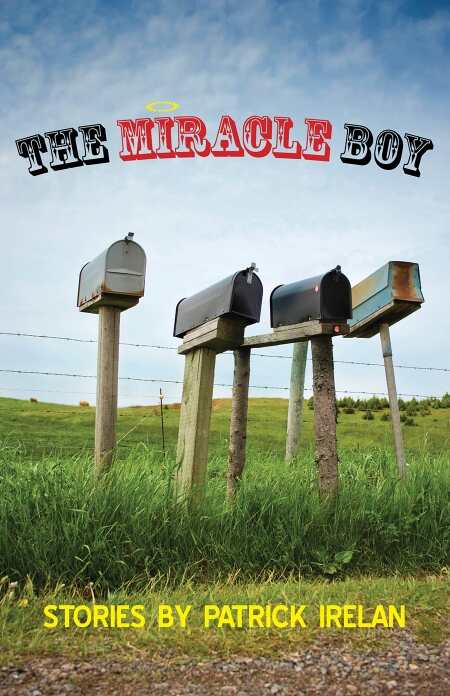The Miracle Boy
This plainspoken and quirky collection is imbued with a wit as comfortable as an evening with Garrison Keillor.
Reading Patrick Irelan’s collection of fifteen short stories is like sitting in the town diner listening to a local tell stories of the town’s inhabitants. Small-time shysters and opportunists in search of quick money populate many of these stories with a few stories reserved for lovelorn. Irelan has a light, sentimental touch that serves the collection well, although it’s a bit monotonous as the collection continues.
The title story, “The Miracle Boy,” displays Irelan’s talents with humor, characterization, and dialogue. Michael is a fourteen-year-old boy living on a farm with his parents and his younger sister. In a charming first-person voice, Michael talks of his love for a girl at school and his recently acquired talent to walk on water. His parents immediately see the financial potential in their son’s new ability and devise a matter-of-fact plan to exploit it. In a comic turn of events, the local parish wants Michael to be beatified. The family willingly converts to Catholicism with his mother adding, “we’d have to keep it a secret from the Methodists.” As quickly as Michael’s ability appears, it disappears. The ease and commonsense attitude with which these characters accept their circumstances and the opportunities given is what makes the far-fetched nature of these stories so acceptable and enchanting.
Irelan’s perfect-pitch, folksy wit holds up throughout, even when he makes forays into the everyday drama of life. In “The Sheep: An Essay,” Irelan explores the role of memory when a sick man drifts in and out of consciousness, confusing memories and dreams. This is when Irelan deftly strikes a balance between canny and poignant that rises above the whimsy of the collection.
The sincerity of the characters, be they grifters or victims, makes the dishonesty of their behavior relatable. When the young boy of “New Money” learns that the man he met in the park involved him in a profitable money laundering scam, he returns to the park, unearths the hidden bag of freshly made twenty dollar bills, and continues passing off the bills in his local neighborhood. After all, his single mother needs the money. Or, in “The Lily of the West,” an alcoholic Korean War veteran, who works at the local slaughterhouse, falls for his next-door neighbor’s wife. When he dies soon after the brief affair ends, he remembers her from the grave with a nostalgic sweetness. Each story reveals flawed people making flawed decisions that readers may not identify with but will surely provoke empathy.
Readers who feel comfortable with a Twainian levity and a touch of the surreal will enjoy the simple language and quick-pace of the collection. Irelan’s stories have a punch line cadence that doesn’t let a reader wallow in despair. Instead, he entertains us with Heartland wisdom about how to separate the wheat from the chaff.
Reviewed by
Monica Carter
Disclosure: This article is not an endorsement, but a review. The publisher of this book provided free copies of the book to have their book reviewed by a professional reviewer. No fee was paid by the publisher for this review. Foreword Reviews only recommends books that we love. Foreword Magazine, Inc. is disclosing this in accordance with the Federal Trade Commission’s 16 CFR, Part 255.

